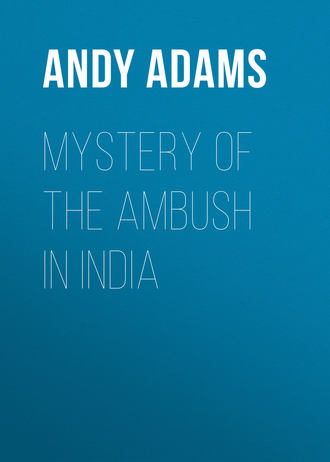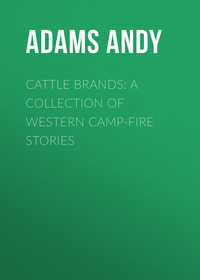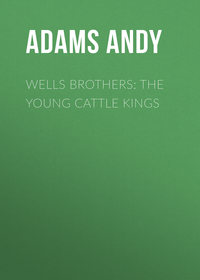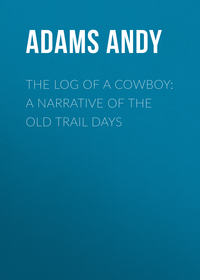 полная версия
полная версияMystery of the Ambush in India
Occasionally, though, Kamuka waved from the compartment window to fruit sellers who also supplied milk and soft drinks. At such stops, first- and second-class passengers went ahead to the dining car or had attendants bring choice dishes to their compartments; but third-class travelers didn’t rate such service.
It was turning dark when the train reached the great coal fields in western Bengal. That part of the trip interested Biff most, because of the mining activity. But there was little to be seen, and soon, despite the rattle and jouncing of the train and the discomfort of the stuffy corner, Biff began dozing off.
Once, Chandra nudged him and whispered, “Watch your turban! Keep it on straight!” and Biff woke sufficiently to realize that he had one ear out of the cumbersome headgear. He worked it into place, saw Chandra nod approval, and then went back to sleep.
Again, Chandra woke both Biff and Kamuka, who was sleeping, too, telling them, “Watch out, now! New passengers coming on board. Don’t let them look at you too close.”
So Biff and Kamuka kept their heads together and engaged in low conversation until the new passengers gave up looking at them and fell asleep themselves. That gave Biff and Kamuka the right to do the same. This time, Biff’s sleep was sound, undisturbed by the joltings of the train or the blare of the locomotive whistle as it rushed on through the thick night.
It was a dream that wakened Biff. He imagined that he was clutching the big ruby, while hands were trying to snatch it from him. He was confronted by bearded Sikhs and as he clawed wildly at their faces, their beards came away, until he saw only one smooth face and opened his eyes to find that the dream, in a sense, was real.
Biff was clutching the bag that contained the ruby, but his hand was deep in his jacket pocket. The hands that were clutching him were Chandra’s, shaking him awake; and the smooth face, too, was Chandra’s. Quickly, the Indian boy put his finger to his lips for silence.
The train was standing still. All was silent in the compartment except for the snores of other passengers. The lights looked dimmer than before, because it was no longer pitch dark outside. Faint streaks of dawn were reddening the sky beyond low-lying hills. The compartment at last seemed slightly cool.
Biff risked a whisper. “Where are we?”
“At an engine-changing station,” Chandra whispered back. “Our own is farther on, but we cannot wait until then.”
He gestured toward Kamuka, who was still asleep. Between them, Biff and Chandra shook Kamuka and roused him instantly. Like a team, the three boys gathered their packs and stepped carefully past the knees and over the legs of sleeping passengers. Moments later, they were on a weather-beaten platform alongside the long, silent train. A few dozen human figures were stretched on the station platform, with white sheets of cloth drawn completely over their motionless forms, like shrouds.
“Railroad workers, mostly,” whispered Chandra, “waiting for the next shift. No one else gets on or off here, at least, not often.”
“But why are they covered over?” asked Biff, impressed by the weird appearance of the figures.
“Because the night was cool for them,” replied Chandra, “but not too cool for the insects. Soon, now, the covering over their heads will keep the sun from waking them.”
The boys stole across the platform past a square-shaped station where more such figures lay asleep. Kamuka, looking back at the train, put the next query:
“But why did we get off here?”
“Too many passengers changed places in the night,” replied Chandra. “I saw new faces; then later, I recognized some of the old again. If we had gotten off at a crowded station, we could easily have been followed. Here, no one else can leave the train without our seeing them.”
Chandra was right. The boys had reached a road that led at an angle from the tracks. Looking back, they could see the full length of the brightly colored train, as they continued on their way. In the gathering daylight, their keen eyes would surely note any motion on the steps of any of the cars. Ahead, the road led through a grove of trees. Once there, the boys themselves would be out of sight.
There was just one spot the boys’ roving eyes did not cover; that was the portion of the platform obscured by the squatty station. There, three white-shrouded shapes were rising like ghosts in the gray dawn. They dropped away their sleeping sacks, revealing limber figures clad in dark clothes that blended with the background of the station wall, as well as the trees beyond.
One man gave an order in a native dialect and like human bloodhounds, the stealthy trio stalked off along the very road that the three boys had taken!
VI
The Cry of Death
When the dawn had broadened into full daylight, the change was not too noticeable, for by now the boys were trudging along a narrow, winding road that was flanked by vivid tropical foliage and thick, overhanging tree boughs that cut off much of the sunlight.
To Kamuka, this was intriguing indeed, for it carried him back to his own jungle life in Brazil, especially when he caught the chatter of the monkeys from the higher branches. But to Chandra, who was familiar with it all, such sounds were an annoyance as he tried to explain his plans to Biff.
“This road will take us to the Grand Trunk Road,” stated Chandra, “which we will follow until nightfall to reach the village of Supari, where my uncle is patwari– ”
“Patwari?” interposed Biff. “What is that?”
“The same as karnam or kulkarni or talati– I have heard it called by all those names – but it means in English, the man who keeps the village accounts.”
“That would be the town clerk in America.” Biff nodded. “So your uncle is an important man. Go on.”
“On the Grand Trunk Road,” continued Chandra, “we will look like everybody else, because all India is there. You will see hathi, oont, ekka– ”
“Wait now, Chandra,” put in Biff. “Hathis are elephants, that I know. And oonts are camels. But I never heard of ekkas. What are they?”
“Pony carts,” returned Chandra seriously, “and you will also see bicycles and jeeps.”
“It sounds good,” decided Biff. “But what if we were being watched on the train. Do you think they will catch up with us?”
“They cannot catch up,” returned Chandra, “because they have gone ahead. If they talked to ticket agent or to the man who took our tickets, they know where we should get off and will look for us there.”
“When does the train reach our station?” Kamuka asked.
“Not for about an hour,” calculated Chandra, “counting change of engines. Before they come back to look for us, we will be on the Grand Trunk Road.”
Despite his assurance, Chandra was moving rather cautiously, but for another reason. He was looking from side to side, for they were in the jungle now and there was no telling what night creatures might still be on the prowl. Chandra knew this from occasional experience in such a setting, as any Indian boy would who had lived in a native village like Supari. But Kamuka, the boy from Brazil, recognized it instinctively, for he was jungle born and bred, though in the opposite hemisphere.
“Remember, Biff?” queried Kamuka. “The time the big jaguar jumped at you?”
“I remember,” replied Biff, “because it was you who stopped it, Kamuka.”
“I just helped,” said Kamuka. “But this jungle reminds me of jaguars. Do they have them here?”
“They have cheetahs, leopards, and tigers. Those should be enough – and more.”
“And big sucuria, too?”
“Yes, they have those.” Biff turned to Chandra. “He means a boa constrictor. We ran into a big one up the Amazon, a snake the size of your python.”
“What about Macu?” demanded Kamuka.
“Head hunters,” translated Biff to Chandra. “He wants to know if you have them, too.”
“We have something much worse,” declared Chandra solemnly. “We have thugs, or stranglers, who ride on trains with us. They are after your ruby, Biff, if you still have it.”
Anxiously, Biff brought the bag from his pocket, opened it and held the Light of the Lama in his palm, where it caught the glint of the sunlight and reflected it with a vivid crimson sparkle that seemed to dye Biff’s entire hand. The great ruby was larger than the biggest walnut, and as Biff turned it in the light, its flattened surfaces, or facets, rivaled one another with their fiery glow.
Chandra, who had been around the gem markets of Calcutta and other Indian cities, and Kamuka, who had seen the finest of South American stones during his studies in Brazil – both were swept with awe.
“Never have I seen such fire!” exclaimed Chandra. “The red ruby, like the blue sapphire, is often beautiful in color, yet very dull.”
“This one loses its sparkle sometimes,” Biff declared. “And according to Mr. Chand, it’s a bad sign when it does.”
“It gives us a good sign now,” observed Kamuka. “In South America, we have the finest of all gems, the green emerald from Colombia. They say it glows brighter than any red ruby, but now I am not so sure.”
Biff smiled, as he recalled Kamuka’s debates with Li while they were on the freighter voyage. For Kamuka to admit that a product of South America could be matched by those of any other continent, was a concession indeed.
“That ruby,” calculated Chandra, “must be worth ten lakhs at least, ten times a hundred thousand rupees. But that is not why your father wants it. He needs it for some special purpose; that was why he went to New Delhi. That much I have heard Mr. Chand tell Jinnah Jad.”
“So it was through Jinnah Jad,” inquired Biff, “that my father’s message reached me?”
“It was more through me,” returned Chandra proudly. “I swam out to the ship, carrying the tape in this.” He produced a watertight bag on a neck chain. “I looked for the cabin with the tape recorder. I put on the tape, the way Mr. Chand showed me. Then I heard you coming, so I went out through porthole quick, and dropped straight down.”
“A neat trick,” complimented Biff. “I’d like to see you do it some time. Tell me, Chandra, did you ever meet my father?”
“Yes, I see Sahib Brewster twice, when I was there at Chand and Brothers, with Jinnah Jad.”
“And did you meet his friend, Barma Shah?”
“No, never. He came only to see Mr. Chand in secret. He is what you call undercover. He stayed away on purpose, when others began to find out that the ruby was there. Like thugs I speak about.”
They were trudging along the road again, and now Biff recalled that it was Chandra’s mention of thugs, or stranglers, that had caused him to stop and make sure that he still had the priceless ruby safely tucked away.
“These thugs,” questioned Biff, “do they want the ruby because of its value?”
“They want it because of the goddess Kali,” replied Chandra. “That is why they started riot outside of Chand and Brothers. They would have strangled Mr. Chand, but they found the ruby gone – ”
“So they were looking for me because I had it, and they would have killed me for it!” Biff explained.
“That is right. But thugs will strangle almost anybody if they find suitable time and place, because they believe in Kali.”
Biff was putting the ruby back into its bag. Chandra paused to hand him the chain with the waterproof bag, suggesting that he put the packet in that, which Biff decided was a good idea. As they started on again, Biff urged:
“Tell us more about this Kali business, Chandra.”
“People say Kali was a great goddess who killed a huge monster that wanted to destroy the world,” Chandra related. “But each drop of monster blood sprang up into a new monster. So Kali taught men to strangle monsters with a special cloth called rumal, about this long” – Chandra spread his hands approximately a yard apart – “and after monsters were all gone, men began to strangle men in the same way, never shedding any blood. And so they do today.”
“But all that was stopped a hundred years ago – ”
“You mean the time when British Raj said there should be no more thugee? Look there” – Chandra stopped abruptly and pointed to an anthill at the side of the road – “and you see white ants. They are dangerous, like thugs, so I stamp them out.” Roughly, Chandra trampled the anthill and the insects teeming around it. “But are they all stamped out? No, some have gone under – how do you say it?”
“Underground,” returned Biff.
“That is it,” nodded Chandra. “That is the way the thugs went. Underground. Now they have come up again.”
“But why do they want the ruby for Kali?”
“Because they think that rubies are drops of demon blood that will become new demons unless Kali stops them. Your ruby would make biggest demon of all, so they want it most. So Jinnah Jad tells me.”
“How many thugs do you think were on the train with us, Chandra?” Biff asked.
“There always must be three,” declared Chandra. “Two to use the rumal while the third holds the person they strangle. Always, they pick some quiet place. Often they work in many secret bands, so they have a special call, which Jinnah Jad has heard and warned me against. It goes like this – ”
Stopping short, Chandra tilted his head back and gave a long, weird howl, “Hyyyyaaaaahhhh!” that sent shivers up Biff’s spine, despite the increasing warmth of the morning. Biff pulled off his big turban and mopped his forehead.
Kamuka, too, was impressed. Never in the jungle of his own native Amazon had the Brazilian boy heard a cry as strange as that. It was a curious cross between a human shriek for help and an animal’s anguished wail. In jungle or village, it would strike a familiar, yet fearful note.
But as Biff and Kamuka stared in silence, Chandra’s own face turned suddenly tense. From beyond the bend in the narrow road behind them came a distant, echoing answer:
“Hyyyyaaaaahhhh!”
It was Biff who broke the grim hush.
“Try it again, Chandra. Let’s see how close they are.”
Chandra repeated the call in a louder wail that must have carried farther, for now the answer came, not from behind them, but from the jungle reaches up ahead. To the startled boys, their plight was all too grimly plain.
On a forgotten road, walled on both sides by solid jungle, they were trapped between two murderous bands of approaching thugs!
VII
The Temple of Kali
As the boys stood rooted, the strange cries came again; first from one direction, then the other. But now there was a change in their weird tones. They trailed longer, as though the thugs were telling each other something, perhaps that they had helpless victims caught between.
Both Kamuka and Chandra sensed it. Kamuka was for taking to the jungle, a setting that he knew so well, even though it meant facing creatures different from those in Brazil. Chandra was willing to go along with that, but Biff overruled them with a single vote.
“They’d start beating the brush for us,” he argued, “and that would only drive us deeper. It’s not going into the jungle that I mind; it’s our chance of ever coming out.”
He was beckoning the other boys along the road as he added: “We must keep ahead of that bunch behind us, because they are really hot on our trail. Those up front are farther away, even though they are coming toward us. We may still have time to find a clearing where we can hide, or better still, some jungle path.”
Tensely, the boys quickened their pace. The road here was winding more sharply, for it was veering in among the low-lying hills. As they passed a turn in the road, Biff pointed ahead to a gap in the thick jungle, exclaiming, “That may be it!”
Again, long trailing cries came from both directions as though taunting Biff’s hopes. The call from in back was still as far behind, but the one ahead was much closer. Gritting his teeth, Biff muttered for his own benefit, “This will have to be a path – or else!”
It was a path, but a rocky one, leading up a steep slope that flanked the road. But the boys took to it eagerly, climbing rapidly despite their packs, so as to reach the first spot where the path itself made a sharp turn amid the thick foliage.
Once there, they were out of sight from the road below, so they paused for a breather while they dipped water from a little stream that tumbled down among the rocks beside the zigzag path.
Biff asked Chandra, “Any idea where this path may take us?”
“Maybe nowhere,” responded Chandra glumly. “It may just be an old stream gone dry.”
“I don’t think so.” Kamuka studied the course of the stream with a practiced eye. “Look at the smooth rocks here in the stream, yet all those on the path are rough. If water came up there a lot, they would be smooth, too.”
Chandra still was doubtful until Kamuka pointed far up the path.
“See where the path takes a short cut over the little hump of ground?” he said. “The stream would go around that, even in the wet season. This is a path, all right.”
“And we’d better be using it,” Biff put in, “before those thugs get the same idea.”
Low calls of “Hyyaahh” from both directions down on the road below indicated that the pursuing groups were close together, probably closing what they thought were the jaws of a trap. Now that they had regained their wind, the boys lost no time in resuming their climb, this time at a steady, even speed that they were sure would keep them well ahead.
Kamuka was correct about the path. It was a real one, for soon it veered away from the stream entirely and brought the boys to a jutting promontory that gave them a good view over the green wave of the jungle slope below. There they rested again, while Biff traced the course of the road that they had left.
“If we could only cut across and strike the road a few miles up the line,” he said, “we would really shake off those thugs. But no such luck, I guess. We’d never hack our way through all that growth. Let’s stick to the path.”
Sticking to the path meant further climbing, but it proved short, as the top of the hill was only a little way above. As they reached the final hump and emerged from the thick foliage, the boys stopped in surprise. Perched on the summit was a ruined temple, its white marble steps showing through the tangled underbrush, which was climbing up the battered pillars and weather-worn walls.
A corner of the tiled roof had fallen in and a tree projected there instead of a small dome, one of a group surrounding a larger central dome, which was also in a battered state. As the boys reached the steps, there was a sudden chatter from within the ruined temple, and troupes of monkeys scampered out through the holes in the roof and the long window slits in the walls.
“A good hiding place,” decided Chandra, “if the monkeys have been using it as their home.”
“Then we can lie low here,” Biff said, “until after the thugs have gone.”
They were entering through a fancifully tiled archway as Biff spoke. Chandra extended a restraining hand as Biff turned toward an inner corner, where a battered stone railing marked a stairway leading to a floor below.
“Be careful where you lie low,” warned Chandra. “These old places are alive with deadly cobras.”
“But how can the monkeys live with the snakes?”
“They don’t. Monkeys stay up there” – Chandra pointed to a balcony where tiny faces and quick little eyes were peering through what was left of a once ornamental railing – “and the cobras live in the pits below.”
Biff saw that the stairway was blocked by broken chunks from the floor, but he eased away on the chance that a poisonous snake might be lurking in the rubble. Kamuka, meanwhile, had crossed the floor to a small domed platform that was reached by steps leading up from three sides. Kamuka called:
“Biff,” he called. “Come look! See who is here!”
Biff joined Kamuka and stared up at the most hideous idol he had ever seen. It was carved from a dark wood and had white, glaring eyes formed of tiny pearls with a jet-black stone in the center. Larger pearls formed the teeth of an open mouth, from which a carved, red-painted tongue extended.
The ferocious image had four arms extended from its body. One hand held an actual knife with jeweled handle and long curved blade, as though ready for a downward stroke. Another hand was raised in a warning gesture. The third dangled a carved human head. The fourth hand was thrust slightly forward and was cupped, but empty.
From the idol’s neck hung a chain of human skulls, forming a huge, grotesque necklace. Biff had already guessed the identity of the carved horror, when Chandra arrived and gasped the name: “Kali!”
Biff stared at Chandra, wondering why he was so shaken. In a frightened tone, Chandra exclaimed:
“This temple is old and broken, but the idol is a new one! We can’t hide here! This is where the thugs themselves meet to worship Kali. They have driven us up into their trap, and they will come here to hunt us down. See that hand, Biff, the one like a cup? It is supposed to hold blood, so it is waiting for the big ruby that you carry!”
An odd fascination had gripped Biff as he studied the hideous figure of Kali. He snapped out of it now.
“What are we waiting for?” he demanded. “Let’s get out of here!”
They couldn’t go out the way they had come in. Already, a long-drawn cry was sounding from the path leading up to the temple. It was answered almost from the doorway, and the boys realized now that other members of the Kali cult must have been lurking in the fringes of the jungle, watching their arrival.
Kamuka, quick as ever, pointed out a corner stairway leading up to a stone balcony in the rear wall, just above the Kali statue. Sunlight shone through a slitted window that was located there. Grabbing their belongings, the boys raced up the steps, then along the balcony, where they jumped its broken gaps. They reached the window slit and squeezed themselves through to a narrow outer ledge, where they pressed their backs against the wall and stared downward hopelessly.
They were high up in the temple now, the equivalent of about three floors in an ordinary building. There, a full thirty feet below, was a stone court at the rear of the temple wall. The paving was cracked, but as hard as ever – anything but a happy landing.
Close to the wall was the circular rim of a stone well, but it was built up only a few feet from the courtyard. Not a slit, not an opening showed in the wall itself, as the boys studied it cautiously, except for a few irregular cracks that would afford no hold whatever.
If they had arrived here sooner, they could have planned some way to lower themselves to the courtyard, but that was too late for Biff and his companions now.
Already, high-pitched cries of glee were sounding from within the very walls of the crumbling temple that the thugs had turned into a trap baited with their idol, Kali.
VIII
“Move along, Biff – just a little – ”
Chandra, crouched on the ledge, was holding a chunk of stone in his extended hand as he pressed Biff slightly to one side. Chandra dropped the stone, and Biff watched it plummet downward into the courtyard well, where it struck with a splash that sent ripples spreading like a bull’s eye.
“Now watch me,” said Chandra. He tossed his pack down into the courtyard and stood straight up at the exact spot where he had crouched. “My feet are here, by this mark. I step off to there” – he extended his arm again – “and bring hands at sides, feet together…”
Chandra finished by doing just that. He stepped out into space, hands at sides, brought his other foot forward and arrowed straight downward! Biff and Kamuka watched amazed, expecting a crash landing. Instead, Chandra followed the exact path of the stone that he had dropped. The circular well seemed to spread its opening wide to receive him as he hit the water with a sharp plunk and vanished.
Then, after what seemed interminable seconds, Chandra popped up from the surface, reached his arms wide and pulled himself out of the well, which Biff was pleased to see was larger in diameter than it looked. That, Biff realized, was the real mental hazard.
“Either look straight ahead, Kamuka,” he told his friend, tossing his pack-kit and his Sikh turban down into the court, “or just shut your eyes the way I am going to do. Anyway, stand right on Chandra’s mark” – Biff took that position as he spoke – “step off, bring your feet together – ”








